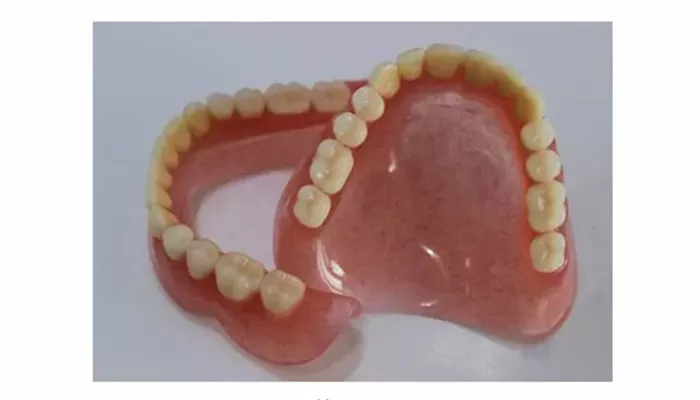Dentures are artificial teeth and gums designed to replace missing teeth. They are an essential part of oral healthcare for many individuals, providing them with the ability to eat, speak, and smile confidently. However, maintaining dentures properly is crucial to ensure their longevity and to prevent oral health issues. One of the key aspects of denture care is cleaning. While commercial denture cleaners are widely available, homemade denture cleaners can also be effective and often more cost-effective. This article will explore the best homemade denture cleaners, their benefits, and how to use them safely and effectively.
Understanding the Importance of Denture Cleaning
Dentures, like natural teeth, are susceptible to plaque and tartar buildup, food particles, and bacteria. If not cleaned properly, these can lead to oral infections, bad breath, and even damage to the dentures themselves. Regular cleaning removes these contaminants, helping to maintain oral health and extend the lifespan of the dentures.
Commercial vs. Homemade Denture Cleaners
Commercial denture cleaners are formulated to effectively clean and disinfect dentures. They often contain strong chemicals that can break down plaque and tartar. However, some individuals may prefer homemade cleaners due to concerns about chemical exposure, cost, or environmental impact.
Homemade denture cleaners can be made using common household ingredients, such as baking soda, vinegar, hydrogen peroxide, and water. These ingredients are generally safe and can be effective in cleaning dentures. However, it’s important to use them correctly to avoid damaging the dentures or causing oral irritation.
The Best Homemade Denture Cleaners
Baking Soda and Water
Baking soda is a natural abrasive that can help remove plaque and tartar from dentures. To make a baking soda-based cleaner, mix one teaspoon of baking soda with enough water to form a paste. Apply the paste to the dentures using a soft toothbrush or cloth, and gently scrub in circular motions. Rinse thoroughly with water and allow the dentures to air dry.
Vinegar and Water
Vinegar is a natural disinfectant and acid that can help break down plaque and tartar. To make a vinegar-based cleaner, mix equal parts vinegar and water in a container. Soak the dentures in the solution for about 30 minutes, then brush them gently with a soft toothbrush and rinse thoroughly with water.
Hydrogen Peroxide and Water
Hydrogen peroxide is a powerful oxidizing agent that can effectively kill bacteria and disinfect surfaces. To make a hydrogen peroxide-based cleaner, mix one part hydrogen peroxide with three parts water in a container. Soak the dentures in the solution for about 30 minutes, then brush them gently with a soft toothbrush and rinse thoroughly with water.
How to Use Homemade Denture Cleaners Safely
When using homemade denture cleaners, it’s important to follow a few safety guidelines to ensure the best results and avoid damage to the dentures or oral irritation.
Always Rinse Thoroughly
After cleaning the dentures with any homemade cleaner, it’s important to rinse them thoroughly with water to remove any residue. This helps to prevent irritation to the gums and mouth.
Avoid Scrubbing Too Hard
When brushing the dentures, use a gentle motion and avoid scrubbing too hard. Scrubbing too hard can scratch the surface of the dentures, making them more susceptible to stains and bacteria.
Don’t Soak for Too Long
Soaking the dentures in a homemade cleaner for too long can cause them to warp or discolor. Follow the recommended soaking time for each cleaner, and don’t exceed it.
Inspect the Dentures Regularly
Regularly inspect the dentures for any signs of wear, damage, or discoloration. If you notice any issues, consult a dentist for advice on how to address them.
Additional Tips for Maintaining Dentures
In addition to using homemade cleaners, there are several other steps you can take to maintain your dentures and keep them in good condition.
Brush Regularly
Brush your dentures at least twice a day, just as you would your natural teeth. Use a soft toothbrush and gentle motions to avoid scratching the surface.
Use a Denture Brush
A denture brush is specifically designed for cleaning dentures and can be more effective than a regular toothbrush. It has softer bristles and a shape that makes it easier to reach all areas of the dentures.
Keep Them Moist
Dentures can dry out and become brittle if they’re not kept moist. When not in use, store them in a container with water or a denture cleanser solution to keep them hydrated.
Avoid Hot Water
Don’t use hot water to clean or soak your dentures. Hot water can cause them to warp or discolor. Instead, use lukewarm or cool water.
Regular Dental Check-ups
Even if you take good care of your dentures at home, it’s important to have regular dental check-ups. Your dentist can inspect the dentures for any signs of wear or damage and provide advice on how to maintain them properly.
Conclusion
Homemade denture cleaners can be an effective and cost-effective way to maintain your dentures. By using common household ingredients like baking soda, vinegar, and hydrogen peroxide, you can create cleaners that are safe, effective, and environmentally friendly. However, it’s important to use these cleaners correctly and follow safety guidelines to avoid damaging the dentures or causing oral irritation. Regular dental check-ups and proper maintenance at home can help ensure that your dentures stay in good condition and provide you with many years of service.
Related topics:

